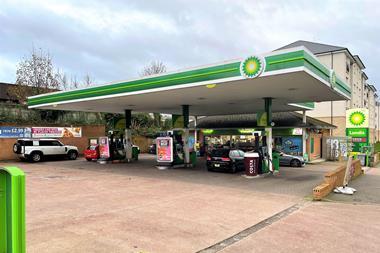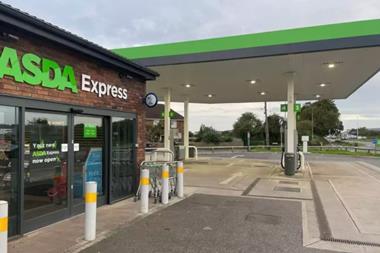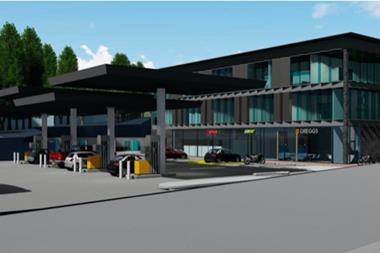Anyone who has acquired a petrol forecourt business will know that there are many different elements to keep in mind during the buying process, which keep both the buyer and their lawyers busy.
"Miss out any of these points and you may find that you have purchased an unviable business," stresses Karen Mason, partner in the commercial property department at long-established law firm, Boodle Hatfield. She should know. She has worked alongside Rontec which acquired the Total business last year advising on its disposal programme. In the past 12 months alone she has been involved in the sale of around 70 sites with more in the pipeline.
Location, location, location
From the purchaser’s perspective, location is critical not least in that it determines the price payable for the business. But there are several elements to consider. "The physical location of the site is obviously really important, particularly in terms of good visibility from the road," says Mason.
"The size of the site will also dictate whether it can operate a good shop, forecourt and car wash." But location also denotes whether the whole site will generate good petrol volumes and sales from the shop and other facilities.
The purchaser needs to think about where the site sits in its locality, which roads feed into it and how many chimney pots it serves. This can only really be achieved by a thorough inspection of the site and its locality.
Operation
Operation, like location, has several elements to it. "When I first started buying and selling petrol stations everything centred on volume," explains Mason. "The valuation was simply a formula based purely on the volume of the petrol and diesel that a site could sell. That equation is now much more complex as all of the operations on the site are equally as important."
A thorough examination of the sales figures is essential as the purchaser will need to forecast exactly what return the site is going to make. It is at this stage that the purchaser can identify areas which are currently not being exploited and what improvements can be made. If the purchase is being funded, this information will have to be included in the business plan submitted with any loan application to the bank.
"Most sites are bought because the purchaser believes he can make an immediate improvement somewhere in the operation and therefore add value and profit," explains Mason. "Simple additions to the income stream can have a real impact on the viability and funding of a site."
Supply
How a site is supplied will often determine whether a profit can be made or not. "It never ceases to amaze me how complex and different fuel margins are and how they can vary depending on the operator and their muscle to negotiate a better, more profitable deal," says Mason. "If the property is being sold with an existing fuel supply agreement with a pre-set margin for any period of time, it can make or break an acquisition."
Site investigation
Environmental investigations and reports have become a real growth area. Good housekeeping can often head off a lot of issues associated with the environmental wellbeing of a site. Mason explains: "Purchasers should examine closely the fuel reconciliation statements for any site to assess what fuel loss, if any, there has been. In the old days this would often determine whether an environmental report was done. However, in the present climate banks dictate otherwise, and it is very unusual for an acquisition to be done without some site investigations by the buyer."
Major oil companies will often sell their sites with the benefit of a clean environmental report, but will often seek an environmental indemnity in return. In such cases the environmental report will need to be carefully examined, stresses Mason. "The purchaser should make sure that any report provided is reviewed by their own environmental consultant and a full assessment of any risks and on-costs is indentified," warns Mason. "The buyer should also ensure that the consultant provides either a reliance letter or third-party rights in favour of the buyer to protect its position after acquisition."
The lawyer’s role
By the time the purchaser instructs his or her lawyer, many of the major decisions have already been made. Part of the lawyer’s job is to continue the process of asking questions to confirm or rebut the facts the client believes have already been established. The first area Mason typically examines is the property itself. This will mean getting an accurate plan of the property and conducting extensive searches to check the exact boundaries, road proposals, services, access and any restrictive covenants. This also means searching the area outside the property and asking extensive questions of the local authority.
"We would always go and look at the property and walk the boundaries so that we have a real-life idea of how the site works," explains Mason. "This may reveal a rogue right of way or even a shop built in part outside the registered boundary of the property." At the same time lawyers would also submit a specific and focused set of enquiries on the property and the business, concentrating on any areas where the client has particular concerns. This could range from rights of adjoining owners to particular defects in the physical building, always concentrating on issues which could affect value.
Existing planning consents will also be examined. Conditions that either restrict opening hours or the times when deliveries can be made to the property would have an adverse effect on the site’s value. New planning consents may be needed before the client can start trading from the site and this additional expense would need to be factored into the acquisition costs.
The lawyer’s investigations will also extend to the host of operational licences and permits that exist. "It is important to ensure that all permits and licences are in the name of the seller and that they are up to date at the time of acquisition," says Mason. "If not then the cost of transfer could be increased considerably as the buyer may be required to bring those licences and consents up to date."
Every petrol station will have a number of employees who work at the site. In most cases the sale will trigger a transfer of a business as a going concern and the employment provisions under the Transfer of Undertakings (Protection of Employment) Regulations 2006 (TUPE) will apply. "Whether TUPE applies will depend on whether the site is company owned, operated under commission, or if it is to be redeveloped or left empty for a period of time after acquisition," explains Mason. "If there is a transfer and the buyer does not wish to take the employees, the dismissals will automatically be deemed to be unfair, and redundancy payments will be due and payable to those staff by the seller."
When buying any business the buyer will expect the seller to warrant many elements of it. This is no different for a forecourt acquisition, and the buyer will need to decide which particular elements of the business they need to obtain warranties on. "If, for example, the sales figures are a particular concern, then it is not unusual to have these annexed to the agreement and warranted by the seller," says Mason.
The final issue to consider is tax: "If the business is transferred as a going concern, VAT is not payable. If not, VAT is charged, which obviously has a huge impact on cash flow," says Mason. "It would also be added to the total amount used to determine the SDLT (stamp duty land tax) payable on transfer."
ten KEY BUYING POINTERS
PriceIs it the best price for the real estate, the business and any environmental liability? Specialist valuation advice should be sought.
FundingHow is the transaction to be funded? Ensure funding is secured before spending a lot of money on due diligence.
Extent/locationA full review should be done including of the propertylooking at the title, any restrictive covenantsand any competition.
TaxA number of taxes will affect the transaction including SDLT, VAT, corporation tax and private tax issues. All need to be considered.
TUPEEvery site will have employees; consider and examine full terms and conditions.
Fuel and tieA major part of any deal. Is the site to be sold free of tie or with the benefit of a fuel supply agreement? If so, are the terms acceptable?
EnvironmentalWhat investigations are going to be done and what reports are already available?
Licences andMake sure they are all available, examined permitsand up-to-date. Get licences transferred.
WarrantiesThese should be sought in the same way as for the purchase of any business. Identify any particular areas of concern.
TimetableWork out a sensible, achievable timetable which enables all the due diligence to bedone. Devise a checklist of your minimum requirements.
funding the purchase of a petrol station
Karen Mason, Boodle Hatfield:
"Financing the purchase of a petrol station is challenging in the present economic climate, but some banks are still willing to lend on the purchase of a petrol filling station, viewing it as a purchase of an operating business, not just real estate. At a time when real estate lending is off the menu, this is a real market advantage.
"It is at the lower end of the market where difficulties can be encountered typically purchases between £500,000 and £1m. In this price range the bank will provide 50-60% of the purchase price. There is still a wide variation on what such a loan will cost, depending on buying power and collateral. This leaves the buyer with a 40-50% equity requirement to fund the purchase, together with a further immediate requirement to fund five days’ fuel under the ground and stock. Historically, this might have been funded via an oil company loan, but the majors have largely withdrawn this facility. Funding can now only be obtained by negotiating five days’ credit with one of the smaller companies. Many operators are bridging the gap through contributions from family and friends.
"A vendor loan may be an alternative. It will be short-term money no longer than three years but could help to bridge that funding gap. Leasing a site is an increasingly attractive option to outright purchase and much easier to fund. David Davis is in charge of Rontec’s letting programme and is currently offering 21-year leases on selected sites." He can be reached by email: dd@ukdavis.com






























No comments yet